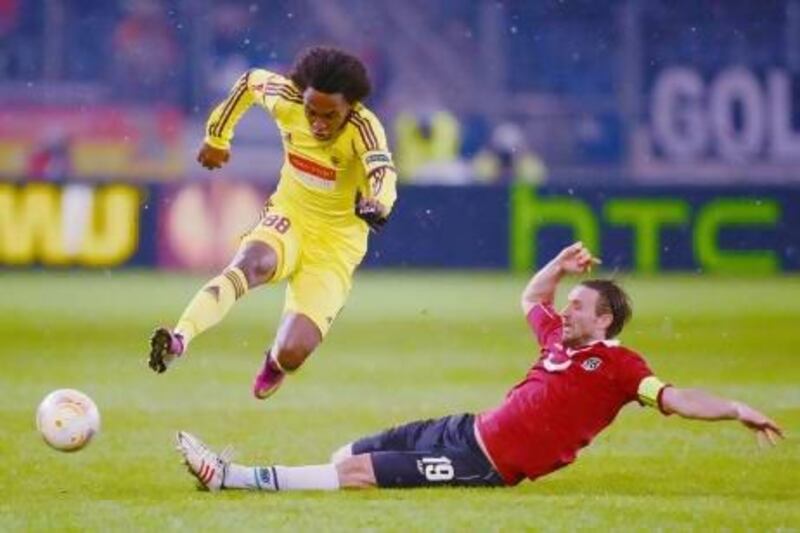Guus Hiddink describes Anzhi Makhachkala as the "most travelling team in the world", but since recently penetrating football's consciousness the nouveau-riche Russian side have been more like a travelling circus.
Big-top transfer fees brought outrageous talent, encouraged equally excessive salaries and fostered a cynicism commensurate with the outlay. New signings were mercenaries who would rather reside around Moscow's Tsvetnoy Boulevard than on the shores of the faraway Caspian Sea.
Yet a refashioned philosophy has prompted a fresh trend. Anzhi are no longer clowning around, Hiddink says.
"When we started a year ago it was relatively chaotic within the team and around it," said the 66-year-old Dutch coach, 13 months into his 18-month contract. "But within one year the club have done really well. The people in charge have made it a serious club."
Hiddink may be the man juggling the resources, but Anzhi's ringmaster goes by the name of Suleyman Kerimov. A billionaire businessman born in Dagestan, he secured his hometown club in January 2011 and promptly set his project in motion.
Samuel Eto'o, at the time one of football's most prolific strikers, was the first show-stopping recruit, taken from Inter Milan and handed, according to reports, €20 million (Dh95.8m), after tax, for each of the three years on his deal.
Roberto Carlos, a World Cup winner and a former "Galactico" at Real Madrid, swiftly followed; free-spending Anzhi had become a byword for overindulgence.
The extravagance continued with January's capture of Willian, a coveted Brazilian, for a fee believed to be around €35m.
However, despite the seemingly bottomless bank account, Hiddink claims the club are now promoting a more circumspect approach. A new stadium is built and the youth academy constructed, as Anzhi become "bit by bit a proper club, a professional club". Although not immediately apparent, cautious evolution has replaced fast-track fame.
"When Anzhi comes in for players all the presidents say, 'Oh, Anzhi? We'll double the price.' But we don't do that any more," Hiddink said. "In this new philosophy we don't go into the ridiculous. Although we can afford it, we're not going into stupid amounts of money to get players.
"Of course, we buy – you see that with Willian - but that's future orientated, a boy of 23 years. You can say he was a lot of money but we've signed him for up to six years and can build a team with guys like that."
Creating a history is at the forefront of Anzhi's thoughts. Players still train in the Russian capital and commute 1,600 kilometres for home matches – Dagestan is afflicted by constant civil conflict - but there is a belief the trophy cabinet in Makhachkala will soon be home to some shiny souvenirs.
On Sunday, the Russian Premier League resumes with Hiddink's men second, two points behind CSKA Moscow, the perennial achievers. Anzhi are in the quarter-finals of the Russian Cup, too, while tonight they host Newcastle United in the first leg of their Europa League last-16 tie.
Hiddink, a European Cup winner as a manager with PSV Eindhoven, expects the English side to be physically strong and buoyed by several January signings, but he is confident of progression. Anzhi are intent on making their mark.
"If we go further in Europe it will be beautiful," he said. "But the aims are to mix with the four Moscow clubs and Zenit [Saint Petersburg] and see in between if we can go through in Europe. We're one step ahead already; we'd like to take that next step."
Expensive tastes allegedly curbed, Russia's caviar club now has an appetite for sustained success.
Follow us
[ @SprtNationalUAE ]






